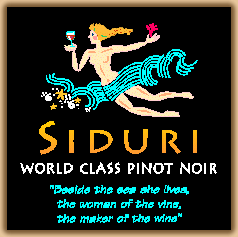 With Passover starting today and Easter a few days away, I should probably pick one or the other - or both - religious holidays to give a few wine pointers about. But today I'm inspired to go a different route; so if it was holiday wine you were hoping for my musings about, I hope instead you'll use this as an opportunity to get your own feet wet in your local shop (if you haven't already - tisk, tisk!) and see what your local buyer might recommend. (A Riesling or Gewurtztraminer for your Ham dinner, perhaps? Or maybe you're having lamb and need a dynamic red blend from the Cote du Rhone or even California? But I digress...)
We've been tasting a bunch of Pinot Noir again lately at the shop. (A tough job, but someone has to do it!) We usually get on the Pinot tasting wagon around the winter holidays because it pairs so well with Thanksgiving dinner and is often a special selection at Christmas. Well, it turns out we're at this crazy point in the year where two vintages are available: the 2006 vintage is still perfectly delicious, but the 2007's are starting to get a bit more of a 'push' from salesmen. Just this week Wine Spectator magazine reported the same thing via Monday's Tasting Highlights article. And so here I am telling my own tale in the very, very informal "battle of the Pinots".
With Passover starting today and Easter a few days away, I should probably pick one or the other - or both - religious holidays to give a few wine pointers about. But today I'm inspired to go a different route; so if it was holiday wine you were hoping for my musings about, I hope instead you'll use this as an opportunity to get your own feet wet in your local shop (if you haven't already - tisk, tisk!) and see what your local buyer might recommend. (A Riesling or Gewurtztraminer for your Ham dinner, perhaps? Or maybe you're having lamb and need a dynamic red blend from the Cote du Rhone or even California? But I digress...)
We've been tasting a bunch of Pinot Noir again lately at the shop. (A tough job, but someone has to do it!) We usually get on the Pinot tasting wagon around the winter holidays because it pairs so well with Thanksgiving dinner and is often a special selection at Christmas. Well, it turns out we're at this crazy point in the year where two vintages are available: the 2006 vintage is still perfectly delicious, but the 2007's are starting to get a bit more of a 'push' from salesmen. Just this week Wine Spectator magazine reported the same thing via Monday's Tasting Highlights article. And so here I am telling my own tale in the very, very informal "battle of the Pinots".
First, let's remember each vintage in each (sub)region of the world is unique. I recommend Googling various grapes and regions for vintage reports particular to a given year - and then reading a myriad articles for greater perspective on the lay of the land. Second, please, please remember good wine can be made in a bad year. That's what we call winemaker expertise. (Of course, pretty much anyone can make good wine in a good year.) Finally, each individual wine sings its own tune. So ultimately, you have to taste to know.
By point of reference, I found 2006 largely produced a solid batch of domestic Pinot Noirs. Of course there were some hits, some homeruns (go Pedroia and Varitek! ahem, sorry...) and some horrible misses. But for the most part, the wines are solid across the board. You simply need to know what style you prefer (ligher, earthier, meatier/fleshier, coca cola or beets, etc.) and ask your wine buyer which one is likely to suit your palate - but I argue 2006 Pinots largely don't suck.
The 2007s, on the other hand, struggled out of the gates last fall. It was a rainy year here in the States, with varying results depending on when the grapes were harvested and how badly the rains fell in a given (sub)appellation. When we started tasting through these wines in anticipation of Christmas last fall, many were a bit rough around the edges, still tight and green and a bit disjointed, showing very little fruit at all. We suspected they just needed some time to 'settle in' and would improve in as little as six months.
Wouldn't you know, it's been just about that time? Today, with some bottle time under its belt, the O'Reilly's Pinot Noir is more reminiscent of its fan-favorite 2006 counterpart; the Siduri '07 Pinots are absolutely sudductive; the '07 Dobbes Family Estates Assemblage Cuvee (and their less expensive offering under the "Wine by Joe" label) are solid, solid wines; and.... the list goes on!
This Wednesday I encourage you to get out and about and try your own grouping of Pinots from both vintage years (whichever part of the world you prefer) and see which strikes your fancy!
Have you had your own 2006 vs. 2007 Pinot Noir taste-off yet? Were they from the same vineyard, or different selections all together? Tell us your impressions!
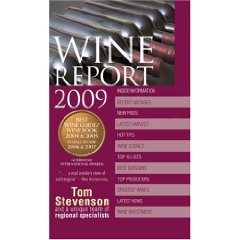 Those of us in the wine industry know August is a sleeper month. Sales always drop as folks head out of town for some rest before school starts again. This calm-before-the-storm is a relief to many of us because we're about to embark on Trade Tasting Season, which starts in just a couple of weeks - and is, quite frankly, insane.
Further evidence of this quiet month is just how little truly newsworthy wine "news" is out there these days. No less, Decanter comes through for us once again this week! Here are three articles that rose to the top for me:
Those of us in the wine industry know August is a sleeper month. Sales always drop as folks head out of town for some rest before school starts again. This calm-before-the-storm is a relief to many of us because we're about to embark on Trade Tasting Season, which starts in just a couple of weeks - and is, quite frankly, insane.
Further evidence of this quiet month is just how little truly newsworthy wine "news" is out there these days. No less, Decanter comes through for us once again this week! Here are three articles that rose to the top for me: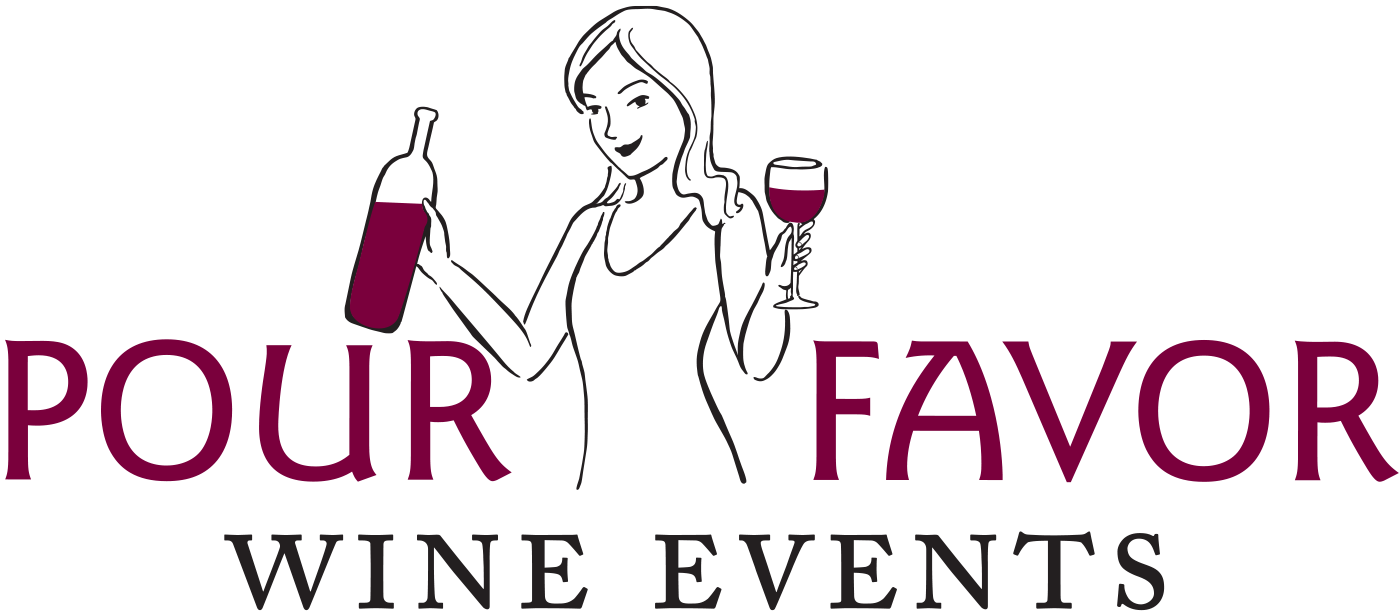

 This week Decanter "wins" for the most captivating wine news. Tune into these fast-paced articles over your morning coffee. These headlines are sure to get you sailing right into your weekend!
Here's a preview:
This week Decanter "wins" for the most captivating wine news. Tune into these fast-paced articles over your morning coffee. These headlines are sure to get you sailing right into your weekend!
Here's a preview: With summer schedules coming into effect and the summer warmth finally landing on our New England shores, it's time to bring wine news to you in a briefer package. Starting this week, we'll be delivering wine news in ~ 200 words or less, offering something to whet your whistle as you daydream about weekend beach adventures ahead, but nothing to keep you from getting out by the early closing bell. Here goes!
With summer schedules coming into effect and the summer warmth finally landing on our New England shores, it's time to bring wine news to you in a briefer package. Starting this week, we'll be delivering wine news in ~ 200 words or less, offering something to whet your whistle as you daydream about weekend beach adventures ahead, but nothing to keep you from getting out by the early closing bell. Here goes!
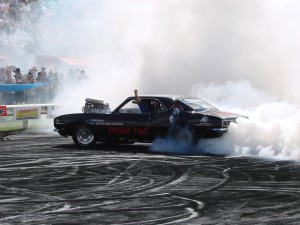 This just in: if you like Toasted Head Chardonnay, take note!
This just in: if you like Toasted Head Chardonnay, take note!  With Passover starting today and Easter a few days away, I should probably pick one or the other - or both - religious holidays to give a few wine pointers about. But today I'm inspired to go a different route; so if it was holiday wine you were hoping for my musings about, I hope instead you'll use this as an opportunity to get your own feet wet in your local shop (if you haven't already - tisk, tisk!) and see what your local buyer might recommend. (A Riesling or Gewurtztraminer for your Ham dinner, perhaps? Or maybe you're having lamb and need a dynamic red blend from the Cote du Rhone or even California? But I digress...)
We've been tasting a bunch of Pinot Noir again lately at the shop. (A tough job, but someone has to do it!) We usually get on the Pinot tasting wagon around the winter holidays because it pairs so well with Thanksgiving dinner and is often a special selection at Christmas. Well, it turns out we're at this crazy point in the year where two vintages are available: the 2006 vintage is still perfectly delicious, but the 2007's are starting to get a bit more of a 'push' from salesmen. Just this week Wine Spectator magazine reported the same thing via
With Passover starting today and Easter a few days away, I should probably pick one or the other - or both - religious holidays to give a few wine pointers about. But today I'm inspired to go a different route; so if it was holiday wine you were hoping for my musings about, I hope instead you'll use this as an opportunity to get your own feet wet in your local shop (if you haven't already - tisk, tisk!) and see what your local buyer might recommend. (A Riesling or Gewurtztraminer for your Ham dinner, perhaps? Or maybe you're having lamb and need a dynamic red blend from the Cote du Rhone or even California? But I digress...)
We've been tasting a bunch of Pinot Noir again lately at the shop. (A tough job, but someone has to do it!) We usually get on the Pinot tasting wagon around the winter holidays because it pairs so well with Thanksgiving dinner and is often a special selection at Christmas. Well, it turns out we're at this crazy point in the year where two vintages are available: the 2006 vintage is still perfectly delicious, but the 2007's are starting to get a bit more of a 'push' from salesmen. Just this week Wine Spectator magazine reported the same thing via  A few headlines crossing myriad academics, if you will, caught my attention this week. Here's what rose to the top of my reading list:
A few headlines crossing myriad academics, if you will, caught my attention this week. Here's what rose to the top of my reading list:
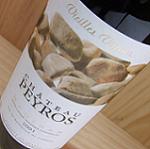 Have you discovered a few (more) gray hairs? Have you convinced yourself laugh lines are endearing or add character to your face? For a girl who decided years ago her freckles are really lucky spots (I do have the luck of the Irish, afterall), it makes sense I'm all about an optimistic outlook when it comes to (signs of) aging. Of course, I do my part to stay ahead of the curve: I eat healthfully, exercise regularly, take my vitamins,
Have you discovered a few (more) gray hairs? Have you convinced yourself laugh lines are endearing or add character to your face? For a girl who decided years ago her freckles are really lucky spots (I do have the luck of the Irish, afterall), it makes sense I'm all about an optimistic outlook when it comes to (signs of) aging. Of course, I do my part to stay ahead of the curve: I eat healthfully, exercise regularly, take my vitamins, 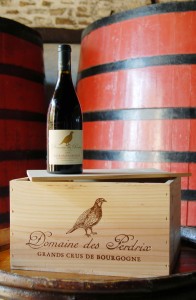 Like the growers champagne tasting I attended in December, the ones I make a real point to get to are not run of the mill, but more of a treat. HD for wine lovers, if you will. Last week I had the pleasure of attending two Burgundy 2007 tastings.
Like the growers champagne tasting I attended in December, the ones I make a real point to get to are not run of the mill, but more of a treat. HD for wine lovers, if you will. Last week I had the pleasure of attending two Burgundy 2007 tastings.  On the heels of the Super Bowl, it's hard not to think about the role of referees in sports. I love instant replay technology. Some of those calls are ridiculously hard to make. Such technology helps us to keep everything on the up and up. Meanwhile, because football coaches are only allotted a certain number of Challenge Calls each half and they are penalized if they get it wrong helps keep everyone honest - and the game clipping along at a reasonable pace.
We're dealing with a different kind of sport when it comes to wine. As a former springboard diver, I argue wine is more like a diving competition where 5 judges have a say in a person's performance. Is this fair?
On the heels of the Super Bowl, it's hard not to think about the role of referees in sports. I love instant replay technology. Some of those calls are ridiculously hard to make. Such technology helps us to keep everything on the up and up. Meanwhile, because football coaches are only allotted a certain number of Challenge Calls each half and they are penalized if they get it wrong helps keep everyone honest - and the game clipping along at a reasonable pace.
We're dealing with a different kind of sport when it comes to wine. As a former springboard diver, I argue wine is more like a diving competition where 5 judges have a say in a person's performance. Is this fair?